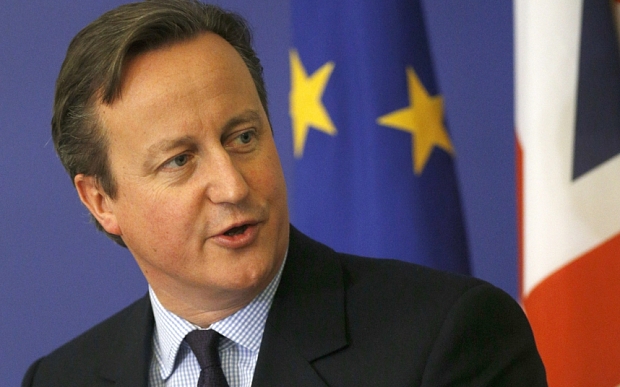"With permission, Mr Speaker, I would like to make a statement on the European Council meeting which took place before Christmas"
Inizia così - il 5 gennaio 2016 - l'intervento del Primo Ministro inglese David Cameron alla House of Parliament su quanto avvenuto nel corso dell'ultimo Consiglio europeo del 2015.
Il meeting - tra le altre cose - affrontava lo scotttante tema della cosiddetta "UK’s renegotiation", la riforma della membership nell'Ue voluta da Londra, in vista del referendum del 2017 che permetterà agli inglesi di decidere se restare o meno nelle stanze dei bottoni brussellesi.
"Ho delineato - spiega Cameron - le 4 aree nelle quali il Regno Unito intende promuovere significative riforme. Con riferimento alla sovranità ed alla sussidiarietà, ho chiarito che il nostro paese non intende far parte di una Unione sempre più stretta, ma che intende, anzi, rafforzare il ruolo dei parlamenti nazionali".
Sul piano della competitività, Cameron chiarisce che "l'Ue dovrebbe rafforzarla piuttosto che comprimerla: servono - spiega - nuovi accordi commerciali, una riduzione della regolamentazione ed il completamento del mercato unico".
Con questo ultimo passaggio, impossibile non notarlo, il discorso di Cameron diventa lievemente contraddittorio, laddove si augura un completamento del single market, aspetto che significa di per sé un rafforzamento dell'Ue e di uno dei suoi storici e maggiori risultati.
Il PM poi si riferisce alla questione monetaria, augurandosi che - nell'ambito dellì'integrità del mercato unico - non ci siano discriminazione e detrimento per i paesi, come l'UK, fuori dall'Euro.
Il tema della politica migratoria, poi, vede Cameron sottolineare la necessità di contrastare gli abusi della libertà di movimento, facendo sì che il sistema di welfare britannico non sia, per i migranti, una finta esca (letteralmente "artificial draw").
"Mr Speaker, this is the first time a country has tried to renegotiate its membership of the EU from a standing start".
"Molti, prosegue, dubitavano ciò fosse possibile, mentre questo Consiglio ha dedicato una intera sessione a questo tema, con il contributo di ciascuno degli altri leader europei".
"C'è - spiega il Primo Ministro - una forte volontà di far rimanere il Regno Unito nell'Ue. I leader europei hanno sottolineato che per il bene dell'Europa unita occorre mantenere al suo interno la Gran Bretagna, delineando una chiara volontà di raggiungere un accordo".
C'è stata una discussione su tutte le quattro aree e in tutte sono emerse difficoltà. Il tema più spinoso è risultato essere quello della libertà di circolazione e del welfare. "Nondimeno, spiega Cameron, ho riscontrato una grande prova di buona volontà".
Alla fine delle discussioni il Consiglio ha determinato di lavorare per il raggiungimento di soluzioni soddisfacenti per tutti i quattro punti: é importante che le conclusioni parlino di "soluzioni" e non di "compromessi".
Secondo Cameron, queste soluzioni debbono avvenire attraverso riforme vincolanti giuridicamente ed irreversibili.
E Cameron arriva al dunque: "Se arriviamo i fondo ed otteniamo questi cambiamenti, riusciremo a modificare le relazioni UK-UE, dando risposte alle preoccupazioni dei cittadini inglesi. Se non ci riusciamo, non posso escludere nulla" (e qui Cameron si riferisce, non citandola, all'uscita del paese dall'Ue).
"La mia intenzione è fare sì che alla fine della rinegoziazione il Governo inglese raggiunga una raccomandazione e che, poi, si svolga il referendum, nel quale, come è ovvio, sono i cittadini a scegliere e non i politici. Come detto prima di Natale, ci sarà una chiara posizione del Governo, ma sarà possibile per i singoli ministri prendere posizioni personali. Saranno i cittadini britannici a decidere per il futuro di questo paese votando nel referendum se stare o no dentro una UE riformata".
Leggi
qui tutto il discorso di Cameron
Altri post sullo stesso tema:
Cosa dice il voto inglese agli americani
Victory Speech(es)
Cameron, operazione simpatia
Una botta al cerchio, una alla botte
Cameron vs Juncker

